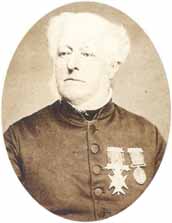 Nation,
Nation,Just stumbled along a post on Mr Jamieson's excellent blog. He's attending a conference in Boston this weekend that I think is very unique- an ultimate conference with both a business expo and a presentation/training component.
Can we be surprised that Boston and the USA is leading the way? No. The American sports industry is a much more mature machine than its Canadian counterpart . This includes sport tourism, sport business and technical sport development. Couple that with ultimate and the role of Boston teams in UPA history, and we see why this conference is happening.
So what does the sport management side of me say? This is what I like
- I love the idea of an academic/presentation aspect to ultimate conference. This will go a long way to improve the game both on and off the field. I will touch on this more below.
- I appreciate the grassroots feel of the conference via the website. Hosting the conference at a high school while at the same time boasting about the speakers and business expo seems like a contradiction. However, we don't need to host things at the Hilton because that's what other sports do. Properly planned and executed, we could host it in any public place.
- I like the involvement of players, coaches and people throughout North America. Places like Seattle, Texas and Toronto will be represented in Boston, and that's great.
- I like the topics covered. Wish I knew about it sooner.
- Why are there no outside experts in the academic and practical fields to give perspective?
- Why are there no men on "The State of Women's Ultimate" panel?
- The conference features a number of speakers talking about a number of key development issues. Their expert status is questionable. Does being a captain of a good team make you a great recruiter or a great strategist? Not necessarily, especially given the regional deposits of talent and the discrepancies therein. Are the Yankees successful? Sure, but they are an example of a terribly inefficient team with a competitive advantage (cash).
- Does being on Sockeye mean you know how to mark better than someone on a lesser team? You may be a fine marker, but you don't necessarily understand the bio mechanics involved, or the actual reasons why what you do works. You also run the risk of advocating something that has worked for one team and set of players as a solution for all teams.
- Further, why is there no outside/counterbalance speakers in the Ultimate business panel. I'm concerned that attendees will hear about how to start up a business from people who honestly haven't gotten to a point where their success has been validated.
I look forward to downloading and evaluating the presentations for 2008 as they become available. I will be more than happy to point out any great points that become available. In the meantime, I want to stress that attendees and readers be open and constructively critical of such presentations.


